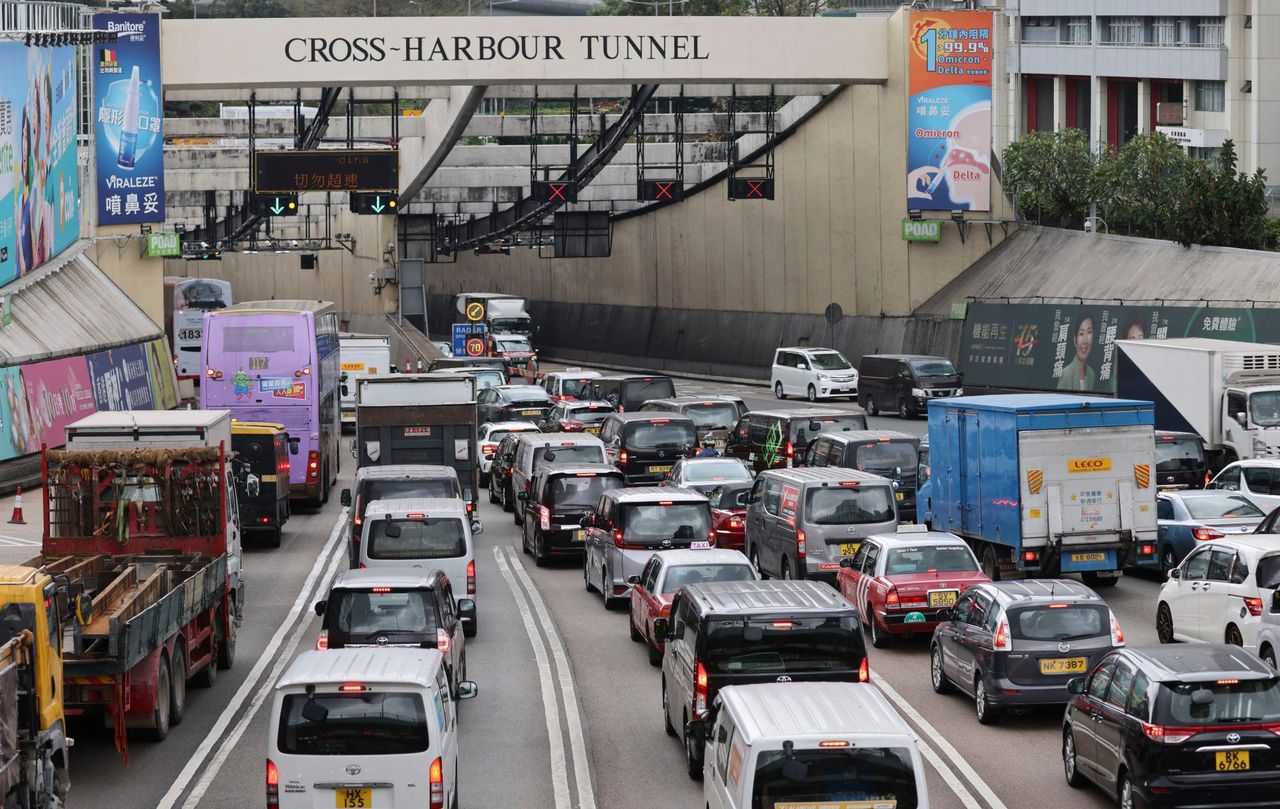Hong Kong News

Bold experiment on tunnel tolls to ease traffic jams deserves credit
The government is set to conduct a bold experiment on tunnel tolls. The first thing to be said is that any administration which can get the words “government”, “bold” and “experiment” in the same sentence deserves great credit.
The changes will come into force in two phases: the first on August 2 after the Western Harbour Tunnel franchise expires, and the second on a date to be fixed, hopefully before the end of the year. The focus of the first phase will be on private cars and taxis, with the former subject to a HK$60 (US$7.65), HK$30, HK$30 (Western, Central, Eastern) regime and the latter subject to a flat HK$25 toll for all three tunnels.
The second phase will be more complicated with tolls varying with the time of day, different arrangements for public holidays and a stiff flat rate for minibuses.
Three main results are envisaged: a reduction in road-based cross-harbour travel, especially by private cars and taxis; a more even traffic volume between the three tunnels; and less peak-hour congestion. Some of the changes are controversial and their practicality has been challenged.
Public reaction will vary according to individual circumstances. All eyes are likely to be on how the sophisticated software needed to implement the arrangements holds up under pressure. Memories of the false start to the HKeToll scheme are still fresh.
We are all familiar with the background to the plans: Hong Kong is a small place with a lot of people and vehicles. The traffic situation is reasonable for much of the day, but congestion can be serious, especially around the central tunnel during peak hours.
 Traffic congestion at the Kowloon side of the Cross-Harbour Tunnel on March 22.
Traffic congestion at the Kowloon side of the Cross-Harbour Tunnel on March 22.
Various suggestions have been put forward, stretching right back to the electronic road pricing (ERP) hotly debated in the 1980s. The latest reform package is partial ERP in all but name. One key objection then was data privacy – that everyone, including the government, would be able to track individual movements.
That debate seems to have been settled. Given the widespread use of Autotoll (soon to be replaced by HKeToll and made compulsory), mobile phones and social media, most people have become more accepting of the idea that complete privacy is a pipe dream, and that the benefits of surrendering some protection can outweigh the risks. Moreover, there is more public awareness of the subject and safeguards can be put in place where necessary.
The clear objective of the first phase is to make mass transport modes – the MTR and double-decker buses – the top choice for cross-harbour travel and squeeze out smaller carriers, especially private cars. That seems reasonable and the proposed toll regime looks workable.
The second target, to make the tunnels more equal in their share of traffic, is more arguable. After all, when we fly, we are used to different standards of service at different prices. If someone is prepared to pay more to cross the harbour more quickly, what is so objectionable?
The counter argument, which seems to have won the day, is that the disparity has become so extreme it is having unacceptable consequences for the vast majority of passengers using the other two tunnels. In any event, there is still a premium element in the new tolls.
And while a reduction in private car and taxi usage should ease peak-hour congestion, the full extent of the effect will only become known after full implementation.
Which brings us to the question of how and when to introduce the further changes that have been mooted. There are two schools of thought. One is in the “everything, everywhere, all at once” mode, i.e. once the first phase has settled down, just throw it all out there and see what happens. The other is to treat the list of possible refinements (e.g. adjusting the peak-hour tolls to HK$60, HK$40, HK$40) as a menu from which to select the next change according to the circumstances.
Having applauded the boldness of the first phase, I am inclined to be a little more cautious about the introduction of further changes. I suggest monitoring the response carefully at each stage, then introducing changes gradually in line with the public’s ability to absorb and accept them.
Lurking behind this discussion are two major issues. The first is: why stop at tunnels? Once each vehicle has been fitted with the device and the billing arrangements have been sorted out, should we be looking to extend the scheme to very busy roads and districts?
How about a special fee for entering Central or other hotspots in the morning rush hour. In other words, once the basic infrastructure is in place, we could return, if we wished, to the original, full ERP package.
The second issue is: what should we do if it still doesn’t work? In other words, after the first phase and all possible refinements have been implemented, what is the way forward to address traffic congestion at the tunnels and elsewhere? Are we talking of a fourth tunnel or, dare I say it, a scheme like the one in Singapore to set a cap on the number of private cars in the city?
In conclusion then, full marks to the Transport Bureau for finally grasping the nettle and coming up with firm proposals to deal with this long-running issue. But something tells me we are not yet at the end of this particular road.











